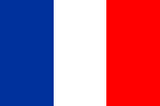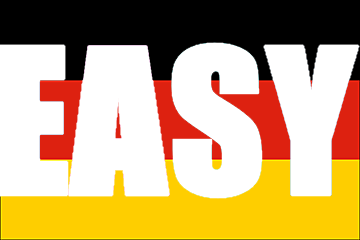| ICFCY-Code | Title | Description |

|
b122
|
Global psychosocial functions |
General mental functions, as they develop over the life span, required to understand and constructively integrate the mental functions that lead to the formation of the personal and interpersonal skills needed to establish reciprocal social interactions, in terms of both meaning and purpose. |

|
b130
|
Energy and drive functions |
General mental functions of physiological and psychological mechanisms that cause the individual to move towards satisfying specific needs and general goals in a persistent manner. |

|
b1344
|
Functions involving the sleep cycle |
Mental functions that produce rapid eye movement (REM) sleep (associated with dreaming) and non-rapid eye movement sleep (NREM) (characterized by the traditional concept of sleep as a time of decreased physiological and psychological activity). |

|
b147
|
Psychomotor functions |
Specific mental functions of control over both motor and psychological events at the body level. |

|
b1470
|
Psychomotor control |
Mental functions that regulate the speed of behaviour or response time that involves both motor and psychological components, such as in disruption of control producing psychomotor retardation (moving and speaking slowly; decrease in gesturing and spontaneity) or psychomotor excitement (excessive behavioural and cognitive activity, usually nonproductive and often in response to inner tension as in toe-tapping, hand-wringing, agitation, or restlessness.) |

|
b1471
|
Quality of psychomotor functions |
Mental functions that produce nonverbal behaviour in the proper sequence and character of its subcomponents, such as hand and eye coordination, or gait. |

|
b1472
|
Organization of psychomotor functions |
Mental functions that produce complex goal directed sequences of movement. |

|
b1478
|
Psychomotor functions, other specified |
|

|
b1479
|
Psychomotor functions, unspecified |
|

|
b7650
|
Involuntary contractions of muscles |
Functions of unintentional, non- or semi-purposive involuntary contractions of a muscle or group of muscles, such as those involved as part of a psychological dysfunction. |

|
d240
|
Handling stress and other psychological demands |
Carrying out simple or complex and coordinated actions to manage and control the psychological demands required to carry out tasks demanding significant responsibilities and involving stress, distraction, or crises, such as taking exams, driving a vehicle during heavy traffic, putting on clothes when hurried by parents, finishing a task within a time-limit or taking care of a large group of children. |

|
d2408
|
Handling stress and other psychological demands, other specified |
|

|
d2409
|
Handling stress and other psychological demands, unspecified |
|

|
e350
|
Domesticated animals |
Animals that provide physical, emotional, or psychological support, such as pets (dogs, cats, birds, fish, etc.) and animals for personal mobility and transportation. |

|
e5800
|
Health services |
Services and programmes at a local, community, regional, state or national level, aimed at delivering interventions to individuals for their physical, psychological and social well-being, such as health promotion and disease prevention services, primary care services, acute care, rehabilitation and long-term care services; services that are publicly or privately funded, delivered on a short-term, long-term, periodic or one-time basis, in a variety of service settings such as community, home-based, school and work settings, general hospitals, speciality hospitals, clinics, and residential and non-residential care facilities, including those who provide these services. |

|
e5801
|
Health systems |
Administrative control and monitoring mechanisms that govern the range of services provided to individuals for their physical, psychological and social well-being, in a variety of settings including community, home-based, school and work settings, general hospitals, speciality hospitals, clinics, and residential and non-residential care facilities, such as systems for implementing regulations and standards that determine eligibility for services, provision of devices, assistive technology or other adapted equipment, and legislation such as health acts that govern features of a health system such as accessibility, universality, portability, public funding and comprehensiveness. |

|
e5802
|
Health policies |
Legislation, regulations and standards that govern the range of services provided to individuals for their physical, psychological and social well-being, in a variety of settings including community, home-based, school and work settings, general hospitals, speciality hospitals, clinics, and residential and non-residential care facilities, such as policies and standards that determine eligibility for services, provision of devices, assistive technology or other adapted equipment, and legislation such as health acts that govern features of a health system such as accessibility, universality, portability, public funding and comprehensiveness. |












 =Select (and add) this code
=Select (and add) this code  Click on a code to expand the branch
Click on a code to expand the branch 

























